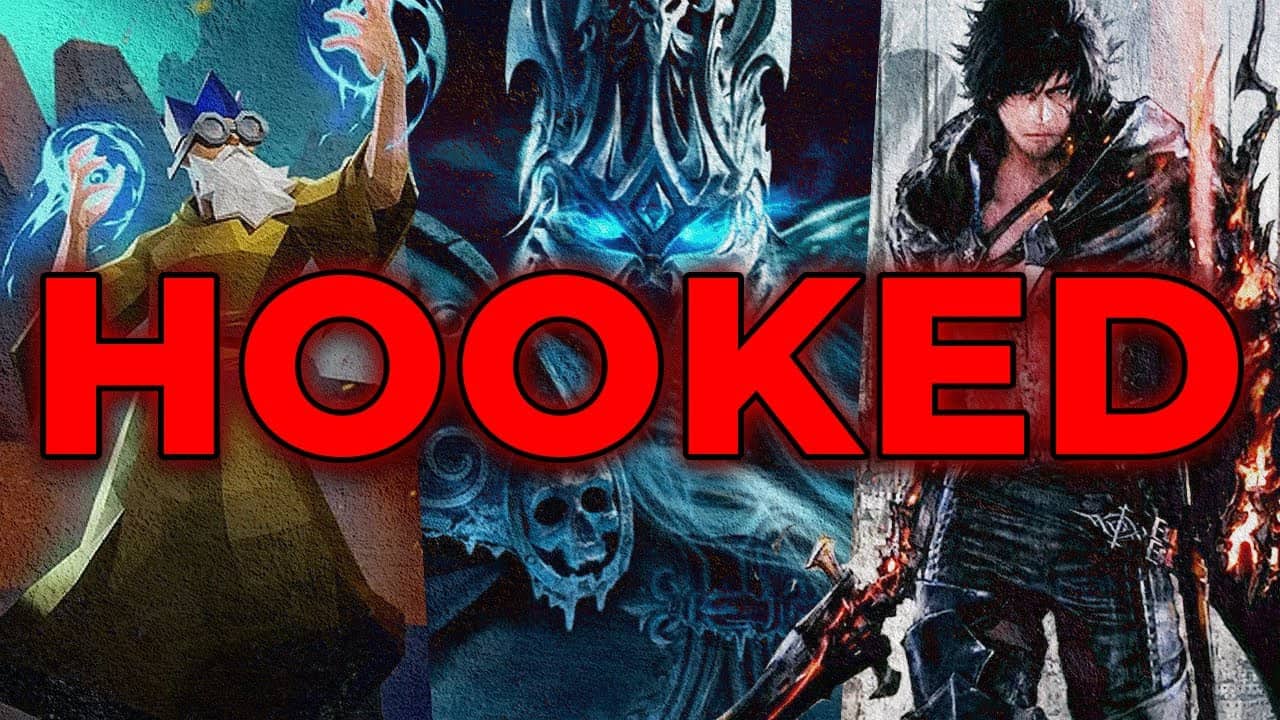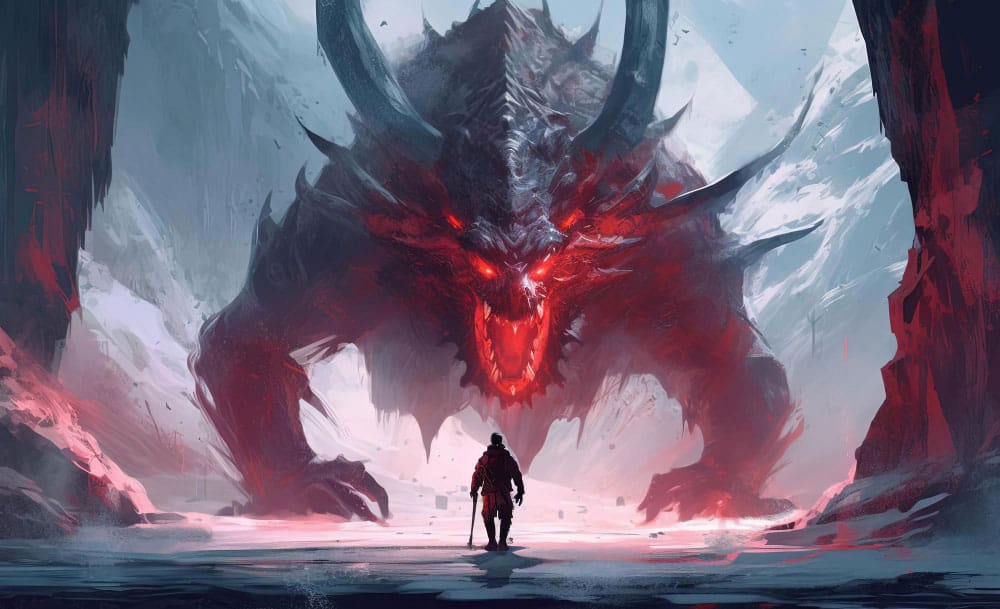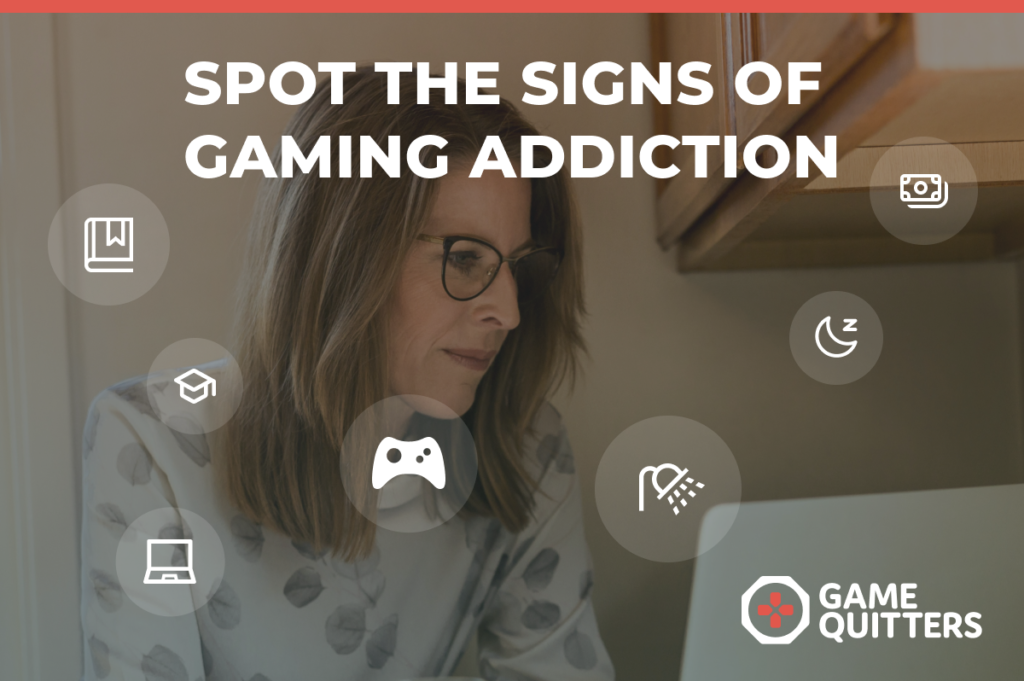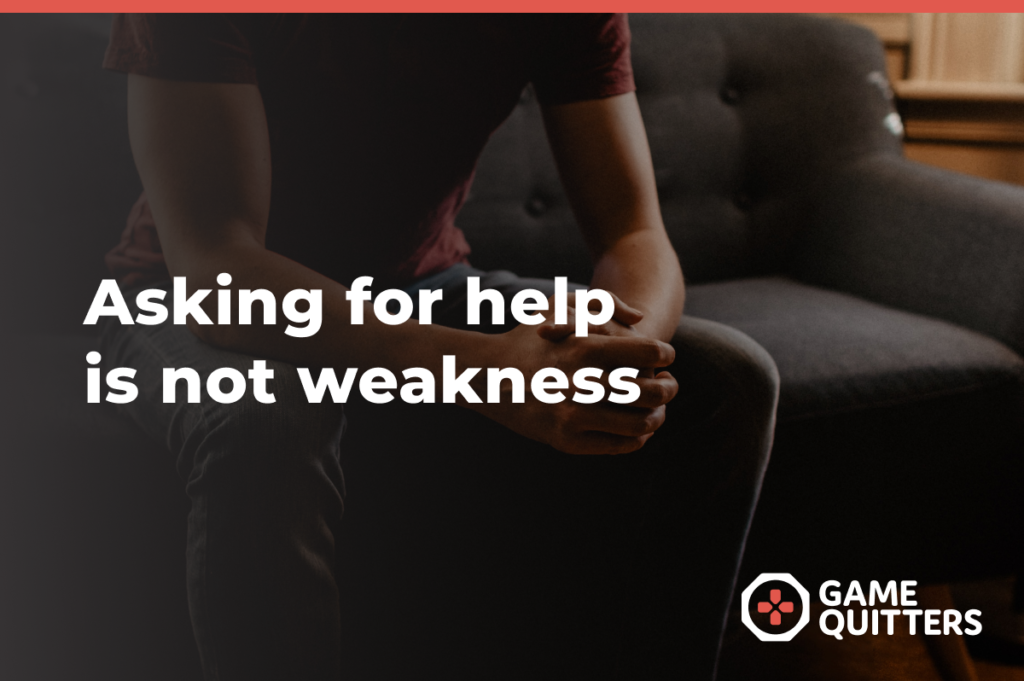
MMO Addiction and How to Break It
All video games are potentially addictive, but massively multiplayer online (MMO) games are usually at the top of the scale.
At Game Quitters, we understand MMO addiction because we’ve experienced it first hand and it’s our mission to help and support others.
This article explains the more addictive nature of MMOs compared to other video games, common signs of MMO addiction and how you can protect yourself from the grasp of these types of games.
What are MMO games?

MMO stands for massively multiplayer online games. These are often accompanied by games that include role-playing and can extend to MMORPG. Popular MMO games include World of Warcraft, Black Desert Online, Guild Wars 2, RuneScape, EverQuest, Final Fantasy 14, Rift and Ultima Online.
MMOs offer a world of unlimited potential: you can be whatever you want, you can have a loyal group of friends, you can travel wherever you want whenever you want, you can win, succeed and conquer challenges and feel like you’re always doing the right thing.
Sound too good to be true? Well, that’s because it is. Many people struggle to play MMOs casually because if you want to achieve anything rewarding in game, you have to put in more and more time and energy – and that can become addictive. There are other reasons why MMO is so addicting as a genre of video game too.
Why are MMO games so addictive?
It’s possible to become addicted to almost any video game, but when it comes to single-player, story-driven games, you usually play them a few times and move on. However, this doesn’t happen with MMOs. That’s because there are several elements that make an MMO game extremely addictive:
Illusion of improvement
MMOs have the ability to convince you that you’re improving in a meaningful way. This taps into the human tendency to be motivated to do tasks, complete them and improve your skills. As you become attached to your character, and since you are in control, you begin to feel like you are the character. Completing challenges and missions in the game creates an illusion that you’re growing and improving as you become more proficient.
Sunk-cost fallacy
When you start playing World of Warcraft, RuneScape or another MMO, you begin the game with pretty much nothing, and in order to build your character and obtain some items you have to put in the time and grind.
A few hours playing an MMO is like a drop in the ocean, whereas if you spent a few hours in a single-player game, you would have already experienced 25% of the game. It pushes you to play the MMO for longer and makes it much harder to stop playing as you’ve already invested so much time in the game.
This is known as the sunk-cost fallacy – when you think you have to keep doing something because you’ve put a lot of time, effort or money into it, even when it’s making your life worse. The sunk-cost fallacy is a big aspect of what makes MMOs so addictive.
Socialization
Humans are social creatures, and gaming companies create MMOs to satisfy and exploit our social cravings. A big part of MMOs are guilds, where a group of players teams up and takes on the challenges of the MMO world together.
When you join or create a guild, a new dimension of the game unlocks for you – accountability. You can’t just turn off your computer or console whenever you want, you have to schedule time to play with your teammates and you have a responsibility not to leave the game in the middle of a combat or raid. This adds an extra layer of commitment to the game. The amount of time spent on gameplay means that for some people, MMOs are the only place they socialize.
If you’re finding that the more you play MMO games, the more you want (or need) to play MMO games, and MMOs are having a negative effect on your life, it could be an addiction.
What are the signs of MMO addiction?

A recurring question on our community forum and parent support group, is what are the signs of a video game addiction? If you’re concerned that you or a loved one may be gaming problematically, here are some common MMO addiction symptoms:
- Constantly thinking about past MMO games or anticipating your next session
- Feeling restless and irritable when unable to play
- Needing to play more frequently to experience the same rush of excitement
- Trying to curb the amount of time you spend on MMO games, without success
- Neglecting other hobbies and interests you used to enjoy
- Continuing to play despite adverse consequences
- Concealing the amount of time you spend gaming from friends and family
- Using MMO games to escape from negative moods or situations
- Jeopardizing school, work and/or relationships.
So, what is an MMO addiction? If you have experienced five or more of the above signs in the last 12 months, you may be at risk.
Still not sure if you’re addicted to MMOs? Take our video game addiction quiz to find out if you or a loved one may have gaming issues.
My addiction to MMO – Cam’s story
I experienced an MMO addiction first-hand. Playing World of Warcraft was both the best and worst time of my life. I loved escaping into a new world, building my character and playing alongside my friends. But I also became addicted to the game and eventually I quit when my life got to a point where I wrote a suicide note.
If you’re struggling to control your MMO gaming, read on to find out how to start living your own life, instead of a virtual life.
How to break MMO addiction
So, how do you get over an MMO addiction? There are steps you can take to turn things around. Here are four tips to help you regain control of your gaming:
1. Do a gaming detox
Playing video games causes your brain to release dopamine, and this repeated behavior can have a similar effect on your brain as gambling, drugs and alcohol. The more you play your favorite MMO game, the more dopamine you need to feel the same thrill.
Our video explores what gaming does to your brain and includes useful advice on having a 30 to 90-day detox to help your brain reset to normal baseline dopamine levels. Taking a complete break can help you moderate your play afterwards or help you quit gaming for good.
2. Find replacement hobbies
While having a detox, look for new activities to replace gaming. You could learn a language, start a podcast, write a short story, take up photography or try a new sport.
Our hobby tool has dozens of ideas to inspire you to put down your games console and have a new focus. It’s also a great way to make new friends and socialize face to face. You don’t even have to take up a new hobby. It could be something you dropped because gaming took over your life that you want to get into again.
3. Schedule your day
Playing MMO games often occurs on impulse. Creating structure in your day will help minimize the urge to play when you have nothing else to do. Having free time is not a rationale for gaming, it’s a sign that you need to find other ways to fill your day.
You could use Google calendar – or whatever works for you – to schedule replacement hobbies, social activities, school, work, daily chores, moderate gaming and more. When you have specific times designated to gaming, it’s a lot easier to stick to those sessions and avoid the impulsive desire to play.
4. Switch to single-player games
In our experience, MMO games tend to be more addictive than single-player games. This is because single-player games have a pause button where you can save your progress and come back later, whereas MMO games are more focused on achievement and rankings. They continue even if you’re not playing, so you can feel a sense of FOMO when other people are getting further ahead.
If you’re looking to limit or moderate your behavior, try switching to single-player games or story-based offline games which are generally less risky.
Need help?

If you’ve tried the steps above but are still struggling to develop healthy gaming habits, you may need professional help.
At Game Quitters, our gamer and family programs provide immediate strategies to stop the spiral and breakthrough denial. You’ll also learn how to improve all areas of your off-screen life, including increased motivation, productivity and social skills.
Take the first step today and book a Gameplan strategy call. Limited slots are available.
During the call, we’ll see if you’re a good fit for one of our coaching programs, where we can help you get your MMO gaming under control for good.
